
The newsletter of UCL Library Services - Issue 23: Autumn term, 2009
Inside this issue
|
Editorial board members:
Elizabeth Chapman, Chris Carrington, Deborah Furness, Nova Larch, Elizabeth Lawes, Grazia Manzotti, Dayaram Nakrani, Martine Painter, Ruth Russell & Margaret Stone.
:: Contact the editorial board
|
 *
* Top Tip! *
|
Welcome
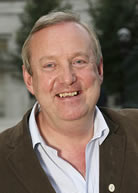 On behalf of all my colleagues in UCL Library Services, may I welcome you to the new academic session in UCL - whether you are a student returning after the Summer break or are joining us for the first time.
On behalf of all my colleagues in UCL Library Services, may I welcome you to the new academic session in UCL - whether you are a student returning after the Summer break or are joining us for the first time.
The UCL family of libraries on 16 sites - there is a library on every site where UCL engages in academic activity - exists to support you all in your studies as a student or as a researcher. The physical library and learning spaces which we provide are complemented by one of the best-stocked digital libraries in UK universities. All these materials, in paper and digital format, are provided to help you with your study.
UCL Library Services passed an important milestone in 2008-09, in that we raised over £1,000,000 in project funding to explore new developments to support teaching, learning and research. As we expand our services and resources, the fruits of this funding will become visible in the new provision we are able to make.
One very important development which took place over the Summer is the completion of the Learning Laboratory on the Ground Floor of the UCL Science Library. It houses the biggest public computer cluster in UCL, provides group and project study areas, houses a postgraduate computer cluster, the Library's Photocopying and Enquiry services, and provides space for Information Systems' Services Desk.
I hope you all enjoy your time here in UCL and that you have both serious study and fun on your agendas.
Best wishes,
Paul Ayris
Director of UCL Library Services
How well does the Library support your research?
 The Library will be running a web-based survey in November 2009 specifically aimed at those conducting research at and for UCL. It's designed to gauge how well the Library - through its print and electronic books, journals and databases, its staff, buildings and other services - supports your research activity and output. We want and need input from all disciplines and from as many researchers as possible. The survey's findings will help us plan for the next few years.
The Library will be running a web-based survey in November 2009 specifically aimed at those conducting research at and for UCL. It's designed to gauge how well the Library - through its print and electronic books, journals and databases, its staff, buildings and other services - supports your research activity and output. We want and need input from all disciplines and from as many researchers as possible. The survey's findings will help us plan for the next few years.
It won't always be clear just how much of the vast quantity of information available at your desktop is paid for, selected and managed by UCL Library Services. We are therefore asking all researchers to complete the survey, even if you aren't aware of being an active user of our services.
We have already conducted interviews with some researchers and consulted major players in UCL research centres to help us draft the survey questions. A £100 Amazon voucher is being offered as a further incentive to complete the survey.
Look out for further messages in the first term and please contact your Subject Librarian if you have any queries. Thanks in advance for participating.
by Gavin Beattie & Vincent Matthews
Start the new academic session by getting WISE
 WISE is UCL Library Services' comprehensive guide to finding and using information which is available in Moodle. Whether you're a new student or an experienced researcher, WISE can help you to discover the most valuable information for your topic, and help you make the best use of it!
WISE is UCL Library Services' comprehensive guide to finding and using information which is available in Moodle. Whether you're a new student or an experienced researcher, WISE can help you to discover the most valuable information for your topic, and help you make the best use of it!
If you're new to academic work, have a look at WISE for Beginners, an introduction to information skills which will help to get you started with your research.
The other WISE modules are subject specific by UCL faculty and take you beyond the basics. All areas of information skills are covered, including preparing a search strategy, using complex online databases, assessing the quality of information, managing your references and avoiding plagiarism. You can work through the module for your faculty or dip in and out where necessary. For many online resources there are interactive tutorials or animated demonstrations to guide you through using them effectively.
by Angela Young
Egyptology rare books
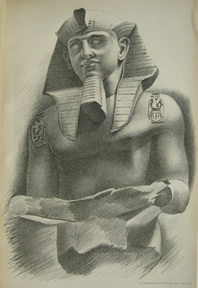 Bust of Rameses (Plate X, "A brief account of the researches and discoveries in Upper Egypt, made under the direction of Henry Salt, Esq." by Giovanni d'Athanasi (London: John Hearne, 1836).
Bust of Rameses (Plate X, "A brief account of the researches and discoveries in Upper Egypt, made under the direction of Henry Salt, Esq." by Giovanni d'Athanasi (London: John Hearne, 1836).
UCL's Egyptology Rare Collection is quite small and comprises 165 titles on Egyptology and Egyptian travel, people, language, history, religion, culture and architecture. Most of the works were published in the 18th and 19th centuries and are mainly in English, French and Latin: however the collection also includes some very important early works such as Pignoria's Mensa Isiaca of 1669 and works by Athanasius Kircher (1602-1680), a German Jesuit scholar who made an early study of Egyptian hieroglyphics.
The collection contains works by some of the pioneers and giants of Egyptology such as Jean-Francois Champollion (1790-1832). Champollion was a French classical scholar, philologist and orientalist who deciphered Egyptian hieroglyphics with the help of groundwork laid by his predecessors, translated parts of the Rosetta Stone, and is regarded as the father of modern Egyptology. We have three of his major works: L'Égypte sous les pharaons, ou, Recherches sur la géographie, la religion, la langue, les écritures et l'histoire de l'Égypte avant l'invasion de Cambyse (Paris, 1814), Panthéon égyptien : collection des personnages mythologiques de l'ancienne Égypte, d'après les monuments, avec un texte explicatif (Paris, 1823), the latter containing 90 leaves of coloured plates, and his famous Lettre à M. Dacier relative à l'alphabet des hiéroglyphes phonétiques employés par les Egyptiens pour inscrire sur leurs monuments les titres, les noms et les surnoms des souverains grecs et romains (Paris, 1822).
Thomas Young (1773-1829), an English polymath who made notable contributions to the field of Egyptology and was one of the first to decipher Egyptian hieroglyphics, replied with his own An account of some recent discoveries in hieroglyphical literature, and Egyptian antiquities : Including the author's original alphabet, as extended by Mr. Champollion, with a translation of five unpublished Greek and Egyptian manuscripts, in which he endeavoured to have his own work recognised as the basis for Champollion's system. This work, which reflects the schism between the two Egyptologists, is also present in the collection.
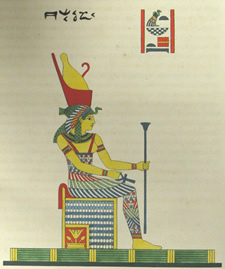 Plate of the Egyptian goddess Neith from "Panthéon égyptien: Collection des personnages mythologiques de l'ancienne Égypte, d'après les monuments, avec un texte explicatif" by Jean-François Champollion, (Paris: Firmin Didot, 1823-[1825?]).
Plate of the Egyptian goddess Neith from "Panthéon égyptien: Collection des personnages mythologiques de l'ancienne Égypte, d'après les monuments, avec un texte explicatif" by Jean-François Champollion, (Paris: Firmin Didot, 1823-[1825?]).
A particularly interesting work is the 1821 "Panckoucke" edition of Description de l'Égypte, ou, Recueil des observations et des recherches qui ont été faites en Égypte pendant l'expédition de l'Armée française which is a collaborative work of scholars, scientists and artists who accompanied Napoleon to Egypt in his 1798-1801 expedition as part of the French Revolutionary Wars.
Another prominent figure in Egyptology was Karl Richard Lepsius (1810-1884), a pioneering German archaeologist and linguist who, in 1842, was commissioned by King Frederick Wilhelm IV of Prussia to head an expedition to Egypt and the Sudan in order to explore and record the remains of the ancient Egyptian civilisations. His work Briefe aus Aegypten, Aethiopien und der Halbinsel des Sinai : geschrieben in den Jahren 1842-1845, während der auf Befehl Sr. Majestät des Königs Friedrich Wilhelm IV von Preussen ausgeführten wissenschaftlichen Expedition ( Berlin, 1852) describes this expedition. Other notable works in the collection include I monumenti dell'Egitto e della Nubia : disegnati dalla spedizione scientifico-letteraria toscana in Egitto; distribuiti in ordine di materie (Pisa, 1832-44) by Ippolito Rosellini (1800-1843), an Italian Egyptologist and disciple of Jean-Francois Champollion. This nine-volume work with plates records the results of his and Champollion's visit to Egypt in 1828 (known as the ‘Franco-Tuscan' expedition) financed by the Grand-Duke of Tuscany, Leopold II, and the King of France, Charles X. Works by English Egyptologists include Topography of Thebes, and general view of Egypt (London, 1835) by Sir John Gardner Wilkinson (1797-1875) and Essay on Dr. Young's and M. Champollion's phonetic system of hieroglyphics : with some additional discoveries, by which it may be applied to decipher the names of the ancient kings of Egypt and Ethiopia (London, 1825) by Henry Salt (1780-1827).
Subjects covered in the collection include: expeditions, excavations and discoveries of antiquities; travels in the years 1768-1773 to discover the source of the Nile; descriptions of journeys and adventures through Egypt and other parts of the Middle East (including Karl Baedecker's travel guide ‘Egypt: Handbook for travellers); natural history (including A handbook to the birds of Egypt (London, 1872) by G. E. Shelley, which has coloured plates); Egyptian language and grammar, including hieroglyphics and Coptic; Egyptian history, geography, religion and mythology.
Many of the books in the collection were bequeathed to the Library in 1963 by Sir Alan Gardiner (1879-1963), President of the Egypt Exploration Society (previously the Egypt Exploration Fund). Sir Alan was a prominent British Egyptologist and linguistic scholar and was also instrumental in founding the Society's organ, the Journal of Egyptian archaeology in 1914. The Collection also contains works bequeathed to the College by Amelia Ann Blanford Edwards (1831-1892), author, Egyptologist and one of the founders of the Egypt Exploration Society. She worked tirelessly for the Society and was a devotee of William Flinders Petrie (1853-1942), who was appointed to the College as the first Professor of Egyptology in the UK.
Find this collection of books in the Catalogue with an "Advanced Search" by selecting "Classmark" on the left-hand side and typing "Egyptology Rare" into the search box on the right.
by Kylia Eastwell
Profile: Margaret Stone, IT Services Development Officer
 I have been at UCL since 2002, working in the IT Services Group, which is responsible for providing local expertise and support for the Library's ever expanding electronic services. We have a behind-the-scenes role, that is our "customers" tend to be colleagues within Library Services, but we generally have some involvement in most projects and services.
I have been at UCL since 2002, working in the IT Services Group, which is responsible for providing local expertise and support for the Library's ever expanding electronic services. We have a behind-the-scenes role, that is our "customers" tend to be colleagues within Library Services, but we generally have some involvement in most projects and services.
Initially, I helped maintain and develop the library management system, which is the engine behind the Library Catalogue and the acquisition and circulation of our books, journals and other materials. However, for the past five years, I have been looking after the systems which provide access to our vast array of electronic resources: electronic journals, databases and other specialist information sources. These systems include the SFX linking service, which streamlines the process of getting hold of UCL's electronic content. Another major system is the MetaLib gateway, which provides links to all our subject resources and allows one to cross-search many of them. Most recently, we have also acquired a behind-the-scenes system for managing the licences for our electronic resources.
Supporting these systems means making sure they are working day-to-day and trouble-shooting any difficulties, plus regular maintenance and upgrades. I also work with colleagues in the Library to develop new services using these systems. Other parts of my role include supporting the login mechanisms used for our services, as well as contributing to UCL-wide projects on information systems. This is an aspect of my job which I particularly enjoy, meeting colleagues from other UCL departments and gaining a broader picture of the UCL community.
My background is in library work, rather than IT, having previously worked as a subject librarian at the University of Reading. However, our team encompasses both those with library backgrounds and those with IT backgrounds, which helps us to ensure that the technology is used appropriately for the library context. Library work tends to be very collaborative: we work closely with colleagues in UCL Information Systems, and we also have many links with IT staff in other university libraries, sharing experiences in order to improve all our services.
I find my area of work very challenging, as so many of our members don't come into the Library very much, but do make heavy use of our electronic services, sometimes even without knowing it. Our aim is to continue developing these services and providing the best possible experience of "virtual" UCL Library Services.
by Margaret Stone
New login replaces Athens
From 1 August 2009, in common with many other UK universities, UCL stopped using the "Athens" login for access to electronic library resources. The Athens login service now incurs an institutional subscription, and it is more efficient for UCL to use an open-source mechanism, based on standards and managed in-house.
You may still see links labelled "Athens login" on various resources, but UCL users must take a different route to log in.
UCL staff and students are advised to access all resources through the lists of electronic journals and databases available on the Library Services website, or through MetaLib.
This will guarantee that you get free access to the wide range of resources to which you are entitled as a UCL member. If you are on-site you will not need to login to most resources. If you are off-site, you will be prompted for your UCL userid and password automatically (no cookies are required, unlike Athens).
WTS on the web uses a different login mechanism and allows seamless access to electronic resources.
If you take another route to reach the website for an electronic resource to which UCL subscribes, you can also follow the instructions on the information page under "Logging in on a resource's homepage".
If you have any queries about this change, or if you have any problems accessing electronic library resources, please first read the information page. If necessary you can then submit your query via the problem report form linked from the page.
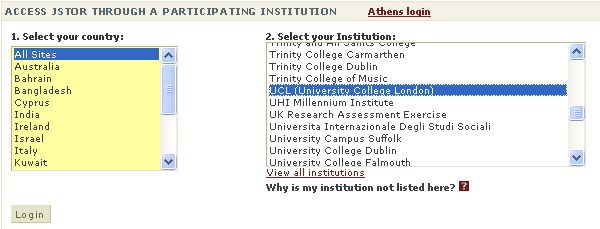 The JSTOR login screen, showing the new UCL login route below the old Athens option
The JSTOR login screen, showing the new UCL login route below the old Athens option
by Margaret Stone
Institute of Ophthalmology funding
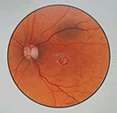 The Wellcome Trust has awarded UCL Library Services a grant of £6,840 for a scoping study entitled "Conservation assessment for the collection held in the UCL Institute of Ophthalmology Joint Library."
The Wellcome Trust has awarded UCL Library Services a grant of £6,840 for a scoping study entitled "Conservation assessment for the collection held in the UCL Institute of Ophthalmology Joint Library."
The Joint Library of the UCL Institute of Ophthalmology and Moorfields Eye Hospital is one of the foremost ophthalmic libraries in Europe. The medical specialty of ophthalmology is one of the oldest branches of medicine and the Institute of Ophthalmology historical collection represents a unique and valuable resource of significance to researchers in the history of medicine. The majority of the collection is from the museum of Moorfields Eye Hospital, formerly the Royal London Ophthalmic Hospital (RLOH), which passed to the Institute when this was founded in 1948 by Sir Stewart Duke-Elder, and to which much further material from other sources has been added over the past 60 years. The collection comprises:
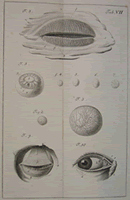
- 1200 printed works dating from 1585 to 1940, some very rare and valuable editions, including a collection of early fundus atlases by Liebreich, von Jaeger and Oeller (1863-1900).
- 25 bundles of papers and correspondence collected by Edward Nettleship (1845-1913), Curator of the RLOH museum, documenting the pedigrees of cases of hereditary eye disease in the late nineteenth century.
- Over 2000 publications, medical illustrations, watercolour paintings and photographs of eye diseases by eminent physicians and ophthalmologists such as John Cunningham Saunders (1773-1810), Benjamin Travers (1783-1858), Sir William Lawrence (1783-1867), Sir William Bowman (1816-1892), John Dalrymple (1803-1852), Jonathan Hutchinson (1828-1913), Sir John Parsons (1868-1957), Ida Mann (1893-1983), and Sir Stewart Duke-Elder (1898-1978).
- A portfolio of 34 medical illustrations of patients treated by Nettleship, AQ Silcock and JH Fisher at Moorfields and St Thomas's Hospital, 1884 to 1910.
- 4 albums of photographs taken before and after operations (Thomas Bickerton, Liverpool 1880-1890).
- Over 400 paintings of the ocular fundus dating from the end of the 19th century to the 1980s, including 10 albums from Theodore Hamblin's illustration department.
- Source material of nearly 800 photographs and other illustrations for Sir Stewart Duke-Elder's Textbook and System of Ophthalmology (1932-1972).
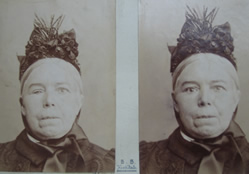 Much of the material held in the collection is unique and is consequently of great value to medical researchers in the field of vision science and ophthalmology.
Much of the material held in the collection is unique and is consequently of great value to medical researchers in the field of vision science and ophthalmology.
The grant from the Wellcome Trust will enable Library Services to commission a detailed survey of the collection by accredited experts, an archivist and a conservator. Once completed, the survey will inform and support future funding bids to catalogue and conserve the collection.
by Anne Chesher
Spotlight on: The UCL Ear Institute & RNID Libraries at the Royal National Throat Nose and Ear Hospital
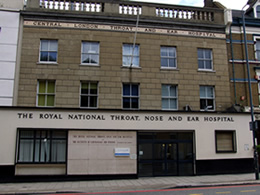 The UCL Ear Institute and RNID Libraries at the Royal National Throat Nose and Ear Hospital [RNTNEH] are a part of UCL Library Service's biomedical library team. Provided by UCL, in partnership with RNID and the NHS, the libraries together are the largest dedicated collection in Europe for ear nose and throat (ENT) medicine, audiology and Deaf Studies.
The UCL Ear Institute and RNID Libraries at the Royal National Throat Nose and Ear Hospital [RNTNEH] are a part of UCL Library Service's biomedical library team. Provided by UCL, in partnership with RNID and the NHS, the libraries together are the largest dedicated collection in Europe for ear nose and throat (ENT) medicine, audiology and Deaf Studies.
The UCL Ear Institute is based at the RNTNEH, a part of the Royal Free Hampstead NHS Trust, and in partnership they constitute the largest single grouping of basic and clinical scientists interested in hearing and deafness in the UK. The original Institute of Laryngology and Otology (ILO) was founded at the RNTNEH as a part of the University of London in 1946, and was renamed in 2005 when UCL decided to concentrate all of the hearing research activity taking place at the University into a new Centre for Auditory Research at the ILO. The ILO Library was founded with the Institute, and was renamed in 2008. As with the Institute, the library collection is about much more than ears, and continues to focus on all aspects of clinical ENT medicine, from dust allergies to the surgical correction of snoring.
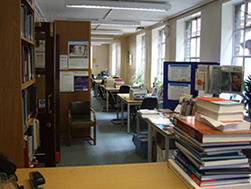 The RNID Library was established at the first meeting of the then National Bureau for Promoting the Welfare of the Deaf, intended in the words of its founder Leo Bonn to "become the centre of a library on deafness, and the storehouse of current literature on the subject". Today RNID is the largest charity working to change the world for the UK's 9 million deaf and hard of hearing people, and is currently making preparations to celebrate a centenary in 2011. The RNID Library continues to be a storehouse of literature about deafness. Subjects in our main collection range from fish bioacoustics to the history of deaf people in Nazi Germany. Our special collections include reports from British deaf schools and institutions, multimedia BSL resources, current magazines from deaf organisations from around the world, and a historical collection focusing on deaf education and signed languages.
The RNID Library was established at the first meeting of the then National Bureau for Promoting the Welfare of the Deaf, intended in the words of its founder Leo Bonn to "become the centre of a library on deafness, and the storehouse of current literature on the subject". Today RNID is the largest charity working to change the world for the UK's 9 million deaf and hard of hearing people, and is currently making preparations to celebrate a centenary in 2011. The RNID Library continues to be a storehouse of literature about deafness. Subjects in our main collection range from fish bioacoustics to the history of deaf people in Nazi Germany. Our special collections include reports from British deaf schools and institutions, multimedia BSL resources, current magazines from deaf organisations from around the world, and a historical collection focusing on deaf education and signed languages.
Working jointly since the RNID Library became a partnership venture with the ILO and UCL in 1994, services at both of the libraries have been delivered by a single team of staff since the retirement of the RNID Librarian Mary Plackett in 2004. Mary, following thirty years in post, is responsible for the strength of the RNID collection today.
The UCL Ear Institute and RNID Libraries at the Royal National Throat Nose and Ear Hospital provide a specialist enquiry service on ENT, audiology and Deaf Studies, which is available to all interested researchers, professionals and members of the public, and reference access to the library collections is free. If you have a question about hearing, deafness or ENT medicine use the enquiry form on our website to get in touch.
by Alex Stagg
 Top of page Top of page
Issue 23 - Autumn term, 2009
|

